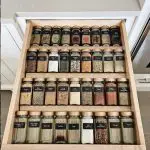Kitchen accidents are a common occurrence in households, especially during the holiday season. Dull knives, slippery floors, and grease fires are the usual suspects. Restaurants are required to abide by a set of guidelines released by the Occupational Safety and Health Administration (OSHA) to prevent accidents in the workplace and to provide limitations on the possible operations in an industrial kitchen.
When business owners abide by these guidelines, they prioritize the safety of their customers and employees. Certain safety features must be placed in every kitchen. These are meant to assist in compliance with health and safety standards for all food production-related processes and protect the employees from harm. Here are some main details that should be present in an industrial kitchen:

3 safety installations for your industrial kitchen
1. Spill containment
Spills are commonplace, especially when oils or other kinds of liquids are involved in the sort of food being produced. These raw materials must be stored somewhere and then transferred into a kitchen. Floor bunding is an efficient way to stop spills from moving to other parts of the kitchen, allowing for easier and targeted cleanup.
They are like speed bumps for flowing liquids on the floor- they will only allow them to travel to a point, preventing a small spill from becoming a greater mess.
Spill containment solutions are necessary when liquids are being stored. Its absence can lead to workers slipping and hurting themselves, and it can increase the chances of contamination during food preparation.
There will be more to clean up if the spill is not contained immediately and appropriately. Having these systems in place will mitigate accidents even if supervision is absent.
Another reason why spill containment is important is to prevent the interaction of some raw materials with other raw materials before the intended period. This way, wasting input can be avoided, saving on the business’ required production. It can also be a method of marking a floor layout that reminds workers of where certain raw materials are located.
2. Fire alarm systems
Since grease fires are a frequent threat in industrial kitchens, they must pass inspections that address potential fire hazards. Fire alarm systems are reactionary, unlike the proactive solutions of spill containment as discussed earlier. Installing fire alarm systems in your kitchen gives workers time to react accordingly as soon as they are informed of the situation.
A proactive component of your system could be the placement of water hoses and fire extinguishers nearby. It will also be helpful to train all employees through fire drills, ensuring that they have an awareness of the gravity of the situation and the steps they need to take to douse the fire.
Business owners can enlist the help of their local fire brigade regarding the protocols they need to follow. A fire marshall can also be designated for orderly compliance to these standard procedures.
One preventive measure to avoid grease fires could be to train cooks in limiting the contact of volatile compounds with fire, such as alcohol. Another solution would be to stay vigilant on the capacities of the machinery available to avoid them from overheating during production. Smoking can also be banned in the workplace to prevent false alarms.
Related Posts
3. Warning signs for risky apparatus
Like the risk of cutting vegetables with a dull knife, the sharpness of particular apparatus such as industrial mixers and food processors can deteriorate over time. Employees might unknowingly expose themselves to hazards while they are performing their tasks.
Proper training must be provided before they are allowed to enter the area where the equipment is placed. This will prevent unnecessary damage to the machinery as well as injury to inexperienced employees.
Warning signs can be placed in front of the apparatus and on the walls near them. This can encourage caution through constant reminders regarding the proper handling of raw materials near the equipment and how workers must behave when they are around the area.
Aside from training, this is an effective way to engage workers about the seriousness of the safety protocols in the workplace. It will discourage improper behavior because their co-workers can remind them of the rules as well.
Industrial kitchens are necessary for small businesses to produce their products for public consumption. They can provide better efficiency in their operations.
The important thing for entrepreneurs to consider is how the safety of their employees must be prioritized. Through proactive solutions, hours of labor and valuable raw material will have a minimal loss while saving lives. This way, the employees stay safe, and operations are not interrupted.





